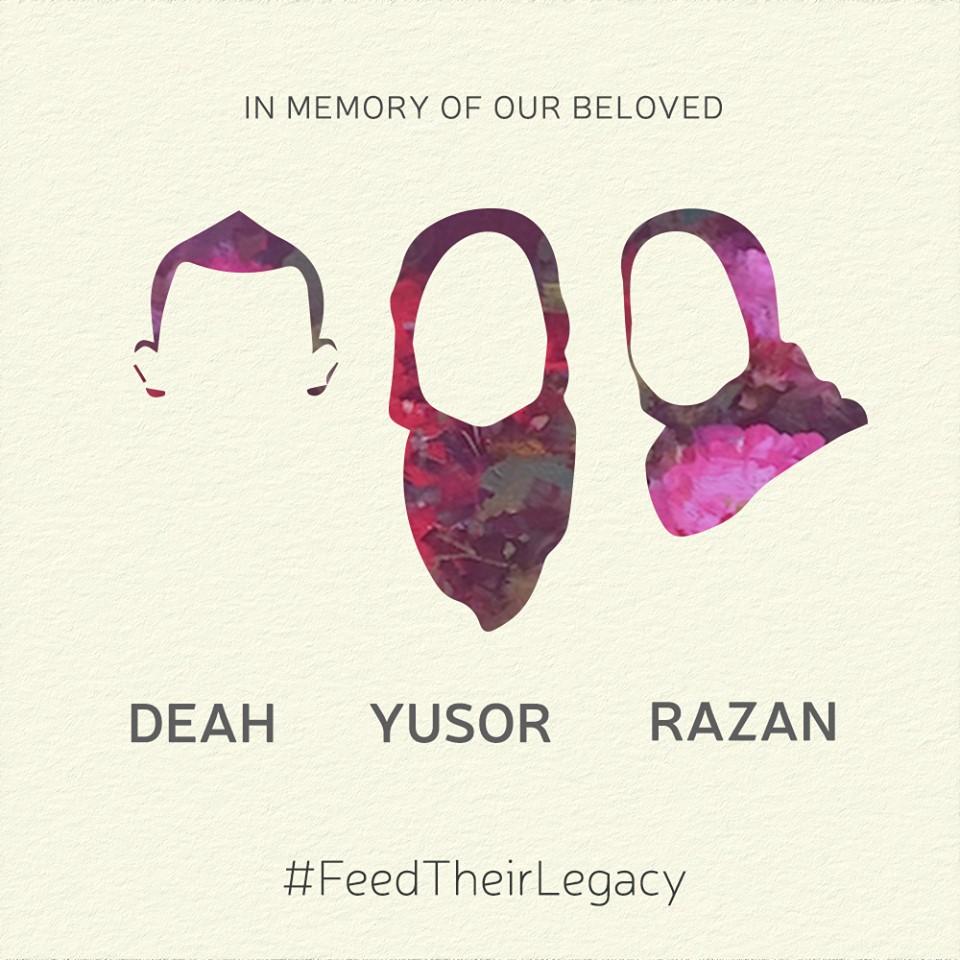Irrespective of initial reports, as time passes and evidence unveils, the Chapel Hill tragedy is looking more and more like—dare I say—a hate crime.
For the few who have yet to hear about the incident, it happened on the evening of February 11th at approximately 5:11 P.M. Terrorist and self-proclaimed anti-theist, Craig Stephen Higgs (46), brutally murdered Deah Shaddy Barakat, 23; Yusor Mohammad Abu-Salha, 21; and Razan Mohammad Abu-Salha, 19 before surrendering himself to local authorities that same night. Yet while identifying it as a hate crime may do justice to the family, other conversations should have already begun.
Although we can spend hours discussing numerous evidence pointing to the fact that this was ignited by bigotry, and that a triple homicide execution style over a parking dispute is simply nonsensical, it would be more of an honor to the victims to discuss where to go from here. It is, however, worthy to note that the police department is investigating it as such, as well as the FBI, who also began a parallel investigation.
Now, the first discussion that should have already begun should be about the fact that the terrorist walked around with an unconcealed weapon intimidating neighbors. As New Jersey residents this may not be our biggest concern, but as Americans we need to realize that this issue has been sweeping the nation, particularly in Southern states but in the North as well. As a matter of fact, in late December last year a toddler in Idaho shot and killed his mother inside a Wal-Mart. We can argue about the fact that she had a permit for her weapon, but that will neither harm nor benefit the situation.
In The Upside of Irrationality, behavioral economist Dan Ariely explains why people tend to appeal more to an individualized cause, i.e. of a particular person, than a general case. He uses the example of a child that was trapped in a well for 58 hours and how that received much more attention from the media than the Africa hunger crisis. Similarly, it is much easier for us to connect to Deah, Yusor and Razan than it is to connect to the displaced Rohingya people in Myanmar. Not only because they have names that have not been reduced to statistics, but because like us they are young American students. This should not, for any reason, stop us from sympathizing or honoring the victims. We should, however, feed their legacy and stand up for justice. That is, whether the injustice is happening to people we feel a connection with or not.
Finally, for a nation built by immigrants, we sure are intolerable of one another. What is essential for us to realize though is that hate only begets hate. Whether it is Islamaphobia today, which is reaching its climax, or whatever type of hate that is present, we need to synergize in order to eliminate it. Such a factor should have no place in the modern American society. There was never a time where freedom of speech meant that a race ridicules another, and it should not mean that today.
We need to combat hate in every way possible. We need to get to know one another, and stand up for justice regardless of who is suffering. It is not that our lives matter, it is that all lives matter. And as one of the most quoted men during black history month said, “You’re not supposed to be so blind with patriotism that you can’t face reality. Wrong is wrong, no matter who says it.” – Malcolm X
By Baraa Elabed



























